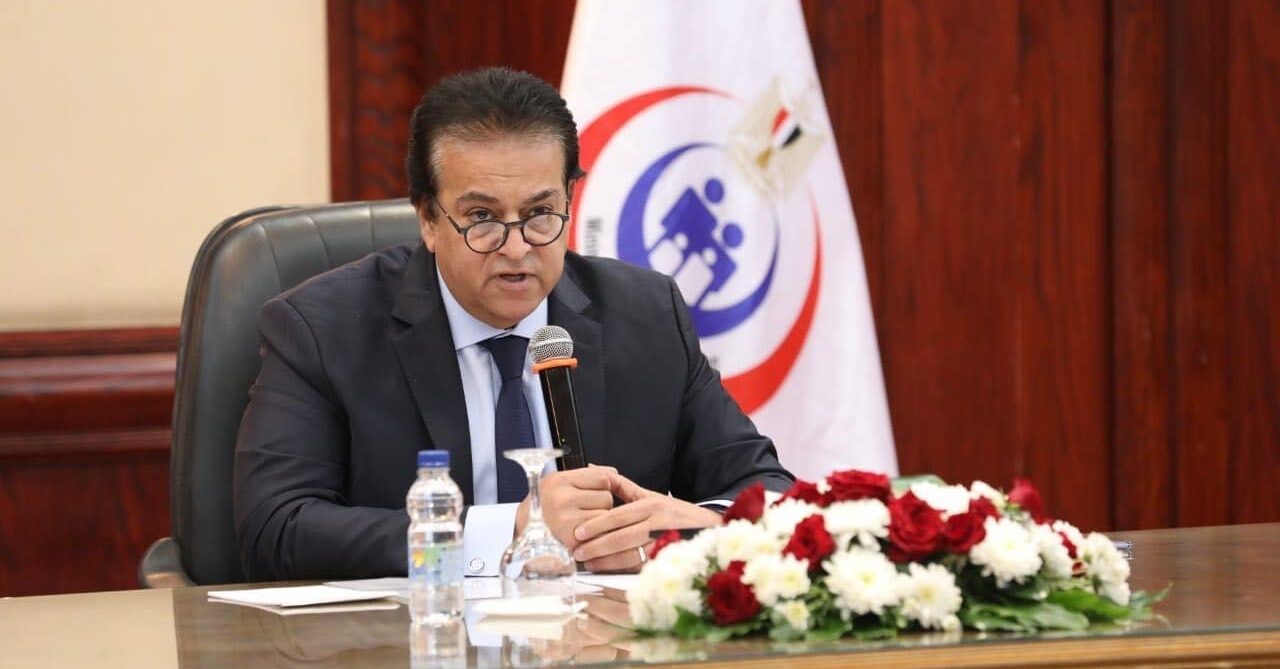Egypt has witnessed a number of healthcare developments in the last five years, including state investments and the launch of various initiatives under the “100 Million Health” initiative, launched in July 2019.
The largest country in North Africa with a population of 114 million, Egypt, ranks at number 14 in the world in terms of population. This highlights the importance of a strong healthcare sector in Egypt as a vital aspect for the well-being and prosperity of its citizens.
In the first three months of 2024, the Ministry of Health provided services to 11.5 million beneficiaries as part of the “100 Million Health,” and has been working systematically even before then.
An initiative set to end waiting lists for surgical procedures was launched in 2018, and since then, two million free-of-charge surgeries have been performed to end waiting lists and make urgent, high-quality surgeries accessible. The initiative includes surgeries for the heart, eye, tumor, brain, heart, kidney, and many more. From July 2023 until February 2024, approximately 73,000 patients have been diagnosed and are being treated.
Early detection of anemia, obesity, and dwarfism comes at the top of the list of priorities for Egypt’s health sector. Eighty-two million students across 30,000 public and private schools across the country have been examined for anemia, obesity, and dwarfism since 2019, according to Dr. Hossam Abdel Ghaffar, the official spokesman for the Egyptian Ministry of Health and Population.
“The initiative aims to provide free treatment for affected students within five years,” he added.
Fewer cases were reported in 2023 compared to 2022, which saw a decrease of 22.7 percent, 15.3 percent less than in 2020 and 2021, according to Abdel Ghaffar.
The “100 Million Health” initiative also works on the early detection of hepatitis C. “Viral hepatitis causes thousands of deaths each year. The Ministry of Health and Population is committed to eliminating hepatitis C from our country and we are optimistic for the future of health for all,” said Khaled Abdel Ghaffar, Minister of Health and Population.
More than 60 million people were tested and 2.2 million were diagnosed and received treatment. Additionally, the hepatitis C treatment rate exceeded 98 percent since the beginning of the campaign.
The Ministry of Health and Population is also working on the early detection of 19 genetic diseases among newborns and providing treatments in the hopes of a healthy generation. As of 21 June 2023, 297,291 newborns have been tested since July 2021.
The coordinator of the initiative for early detection of genetic diseases at the Ministry of Health, Dr. Nanees Abdelmohsen, revealed that 42 centers for the treatment of genetic diseases in newborns have been allocated, in cooperation with the Supreme Council of University Hospitals affiliated with the Ministry of Higher Education and Scientific Research.
Another presidential initiative was launched in 2021 for the early detection and treatment of chronic diseases and nephropathy, targeting people aged 18 with a medical history of chronic diseases.
It offers diagnoses, medical care, and high-quality health services to all Egyptians over the age of 40 years old, according to Abdel Ghaffar. Since launch, around 12.3 million Egyptians have been tested, and those over the set age have been treated for free.
“100 Days of Health”
Part of the “100 Million Health” initiative included “100 Days of Health”, which started on 25 June 2023 and ended on 16 November. During these 100 days, 48.5 million medical services have been offered, according to Abdel Ghaffar.
He also stated that the “100 Days of Health” initiative held 1.9 million survey forms, screening for cancerous tumors, such as prostate, colon, lung, and cervical, and the total number of attendees at the medical convoys reached 1.3 million citizens.
Clinics offering a range of services were opened to fortify the healthcare sector structurally and humanely, combat ailments, and help patients, according to Dr. Mohamed Awad Tag El Din, the Advisor to the President of Egypt for Health and Prevention Affairs.
The Egyptian government’s efforts are ongoing. On 14 April, Mohamed Maait, the Minister of Finance, stated that the healthcare sector’s funding will increase by 25 percent, totaling EGP 495.6 billion (USD 10.4 billion), in line with Egypt’s Vision 2030, to focus on enhancing medical services for Egyptians.







Comments (0)